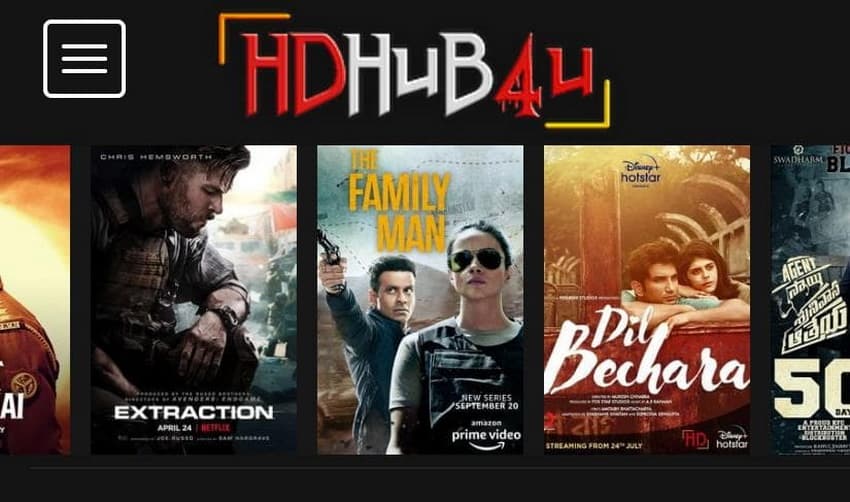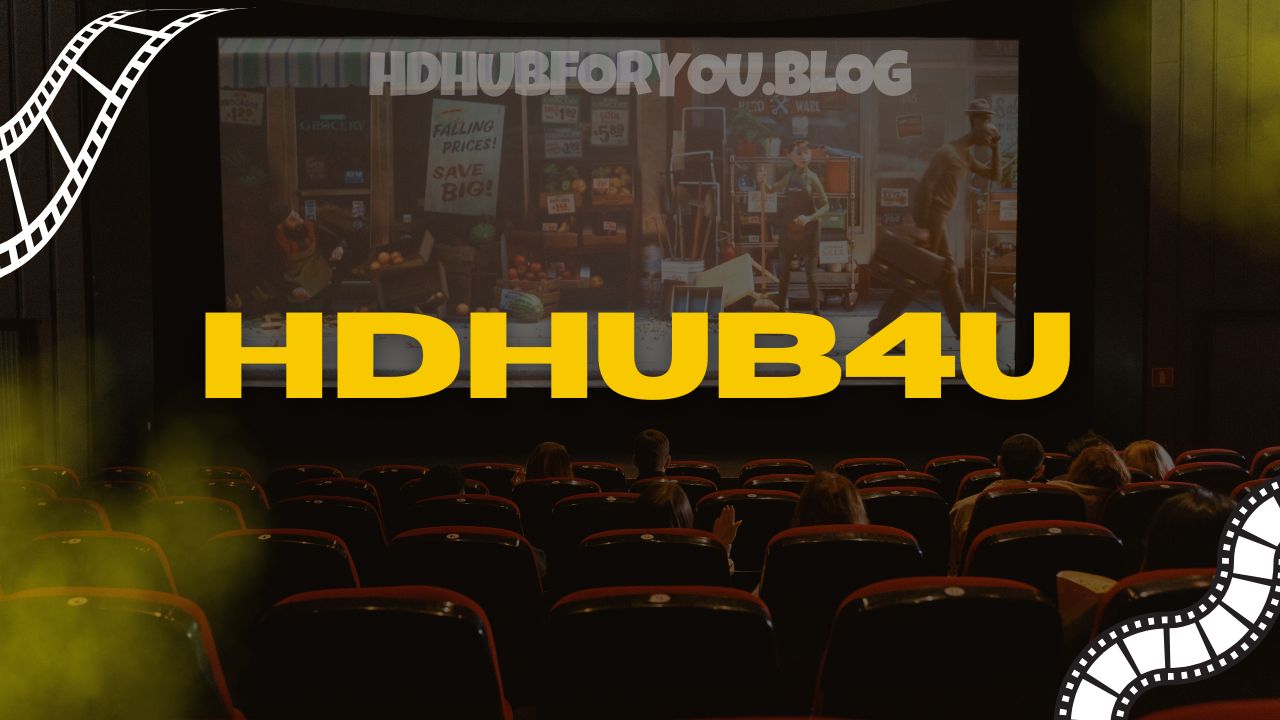Watch Now: Latest Movies On HDHub4u.com - Free!
Is the digital frontier truly a boundless expanse, or is it riddled with shadowy corners where the lines of legality blur? The proliferation of websites like hdhub4u com casts a long shadow, forcing us to confront the uncomfortable truth that copyright infringement remains a persistent challenge in the modern age. The appeal of readily accessible, often free, content is undeniable, but at what cost?
Navigating the internet today is akin to walking through a sprawling bazaar. The sheer volume of information, entertainment, and services available is staggering. But within this vibrant marketplace, there exist vendors operating under the guise of convenience, offering wares that may not be acquired through legitimate means. Websites that provide access to copyrighted movies, television shows, and other forms of media without proper licensing agreements occupy this space, and hdhub4u com is one of the entities that has captured the attention of users.
Examining the specific domain in question, we can examine its functionality and nature. The core of hdhub4u com's operation, it offered a catalog of movies and TV shows, many of which were recent releases. This content was streamed or made available for download, circumventing the established distribution channels that ensure creators and copyright holders are compensated for their work. Such practices, while appealing to those seeking immediate gratification and cost savings, directly undermine the creative industries that provide the entertainment we consume. The business model is built on traffic, monetizing the website through advertisements.
- Kannada Movies 2024 Watch Online Legally Avoid Movierulz
- Telugu Movies Buzz 20232025 Hits Movierulz More
The allure of free content is a powerful draw, particularly for those struggling with financial constraints or simply seeking immediate access to entertainment. The convenience factor also plays a significant role. Instead of subscribing to multiple streaming services or paying for individual movie rentals, users could access a wide array of content through a single platform. This ease of access, coupled with the perceived savings, fuels the continued popularity of websites like hdhub4u com and similar platforms. However, the risks associated with using such sites are substantial, and these risks go beyond the potential for legal repercussions.
The core argument is simple: using websites like hdhub4u com amounts to theft. Copyright laws exist to protect the intellectual property of creators, and any attempt to bypass these protections, whether intentional or not, contributes to the erosion of those rights. The entertainment industry, which employs millions worldwide, relies on revenue generated through legitimate channels. By using pirate sites, users are essentially stealing from the artists, studios, and other individuals involved in the creation and distribution of the content. It harms the entire industry.
Furthermore, the use of such websites exposes users to a variety of cybersecurity threats. The sites often contain malicious software, including viruses and malware, designed to steal personal information, install unwanted programs on devices, or even take control of computer systems. The temptation to click on enticing links and download files from unknown sources is high on these websites. The inherent insecurity is often ignored by users looking for entertainment. The potential for legal action, as well as the ethical considerations, should be enough to deter usage, but it often isnt.
- Adipurush Movierulz Controversy Reviews Movie News Today
- Holt Mccallany Wife Kids Family Life Untold Facts
Lets examine the mechanics. When a user visits a website like hdhub4u com, they are often presented with a seemingly endless catalog of content. The site typically employs a user-friendly interface, making it easy to search for and access desired movies or TV shows. However, behind the facade of convenience lies a complex web of technology designed to evade detection and minimize the risk of legal action. Mirror sites are often created to circumvent takedown requests, and a constant game of cat and mouse between the operators of these sites and copyright holders ensues.
Considering the technological aspects of these sites, the infrastructure supporting these operations is often sophisticated. They rely on content delivery networks (CDNs) to distribute large files, making it possible to stream movies and TV shows to users around the world. The sites also often use domain name registrars and hosting providers based in jurisdictions with lax copyright enforcement laws, further complicating efforts to shut them down. Proxy servers and VPNs are frequently employed to mask the location of the website's operators and users, and this complex arrangement provides a layer of protection from legal repercussions.
Now, we come to the legal and ethical implications, of the websites such as hdhub4u com. They are significant. Copyright laws exist to protect the rights of creators and prevent unauthorized distribution of their work. By providing access to copyrighted material without permission, these websites directly violate these laws. The consequences of using or operating such websites can range from civil lawsuits to criminal charges, depending on the scale of the infringement and the laws of the jurisdiction. The sites also contribute to a wider culture of disrespect for intellectual property, normalizing the act of stealing copyrighted content.
Let's consider the perspective of the content creators. For filmmakers, television producers, musicians, and other artists, copyright is a crucial mechanism for protecting their creative work and ensuring they receive compensation for their efforts. When their work is distributed without authorization, their revenue streams are cut off, and their ability to continue creating new content is diminished. The ethical argument is that using websites like hdhub4u com is akin to stealing the fruits of someone else's labor.
The user's perspective often boils down to a cost versus benefit analysis. The perceived benefits of accessing free content convenience, cost savings, and a vast selection are weighed against the potential risks, such as legal consequences, malware infections, and the ethical implications. Many users rationalize their behavior by claiming they are not causing any harm or that the creators are wealthy enough to absorb the losses. These rationalizations are often used to alleviate the guilt associated with engaging in illegal activity. It's a classic case of cognitive dissonance, where the desire for free content clashes with an understanding of copyright law.
The impact on legitimate streaming services is equally worthy of discussion. The growth of platforms like Netflix, Amazon Prime Video, and Disney+ has transformed the entertainment landscape, offering consumers a convenient and legal way to access a wide variety of content. However, the availability of pirated content undermines the viability of these services. The argument put forward by legitimate platforms is that their ability to invest in original programming and provide high-quality streaming experiences is hampered when a significant portion of the audience chooses to access content illegally. It's a race to the bottom, where the consumer always wins... or does the consumer win?
Further complicating the issue is the ever-evolving landscape of copyright protection. Copyright laws are constantly being updated to keep pace with technological advancements. However, the digital world moves much faster than the legal system, and this creates a constant challenge for copyright holders seeking to protect their work. It is a game of constant evolution. The use of encryption, digital watermarks, and other technologies has become a standard practice in an attempt to protect content from unauthorized distribution. However, these measures are often bypassed by skilled pirates, creating a technological arms race.
Education plays a vital role in curbing the use of illegal streaming websites. Many users are simply unaware of the legal and ethical implications of their actions. Raising public awareness about copyright laws, the risks associated with piracy, and the importance of supporting creative industries can help change behavior. Schools, universities, and other educational institutions have a crucial role to play in educating students about intellectual property rights. Public service campaigns, and partnerships with media outlets are important in delivering these messages.
The role of law enforcement cannot be understated. Law enforcement agencies around the world play a crucial role in combating online piracy. Investigating and prosecuting the operators of illegal streaming websites, as well as taking legal action against users who download or distribute copyrighted content, sends a strong message that these activities will not be tolerated. The enforcement of copyright laws, coupled with the cooperation of internet service providers (ISPs) and other stakeholders, can help disrupt the operations of pirate websites.
Furthermore, technological solutions are also being developed. The development of robust anti-piracy technologies, such as content recognition systems that can identify and block pirated content, offers a promising avenue for combating illegal streaming. Artificial intelligence is being utilized to detect and remove pirated content from the internet automatically. This arms race between pirates and content creators will, inevitably, continue.
However, it's important to acknowledge the nuances of the problem. Access to affordable and legal entertainment options is critical. In regions where legitimate streaming services are not available or are prohibitively expensive, the temptation to access pirated content becomes even greater. Addressing the issue requires a multi-faceted approach. This includes providing affordable streaming options, expanding the availability of legal content, and promoting a culture of respect for intellectual property rights.
Finally, a shift in consumer behavior will be necessary. The reliance on pirated content indicates a fundamental disconnect between consumers and the creative industries. Cultivating a greater appreciation for the work of artists and a willingness to support their efforts is crucial for long-term solutions. By valuing creative endeavors and choosing to consume content through legal and ethical channels, consumers can contribute to a more sustainable and vibrant creative ecosystem. This has already started, with a rise in content creation and consumption through legitimate means.
- Where To Watch Free Movies Online Legal Options Explored
- Blockbuster Alert Best Telugu Movies Of 2025 You Cant Miss

HDHub4U Download Your Ultimate Guide To Movies And Entertainment

HDHub4u Your Ultimate Guide to Safe & Secure Movie Streaming

HDhub4u Download Latest Hollywood & Bollywood Movies in HD